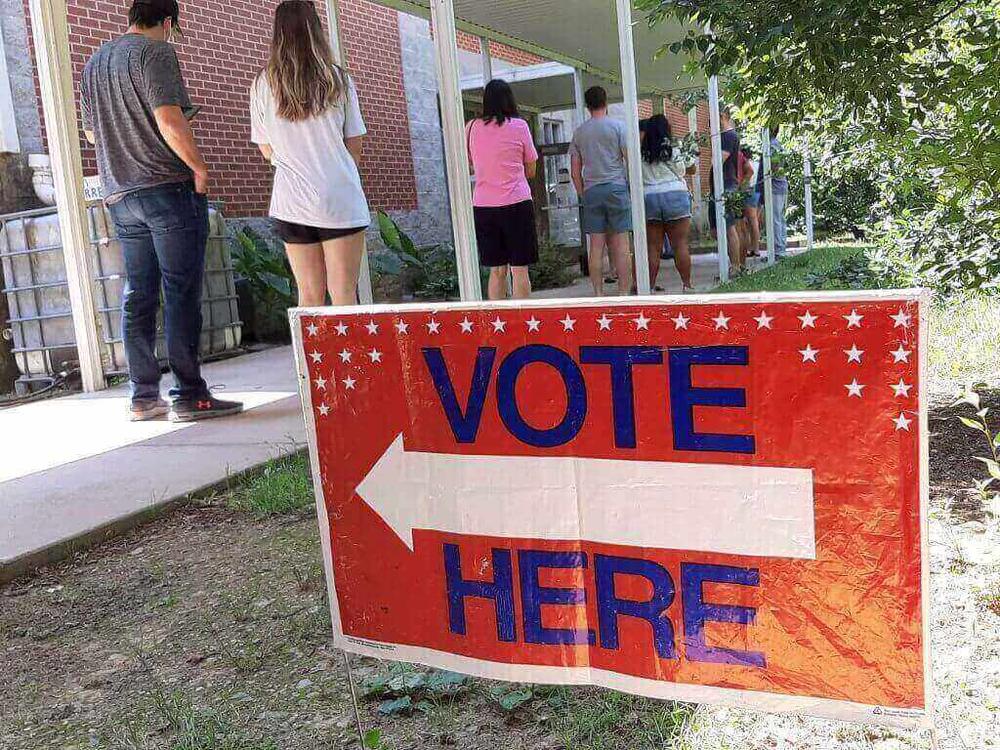
Caption
In the lead up to Georgia’s 2021 U.S. Senate runoff elections, which would determine Senate control, conservative activist group True the Vote challenged the eligibility of 364,000 Georgia voters, drawing a voter intimidation lawsuit.
Credit: John McCosh / Georgia Recorder

